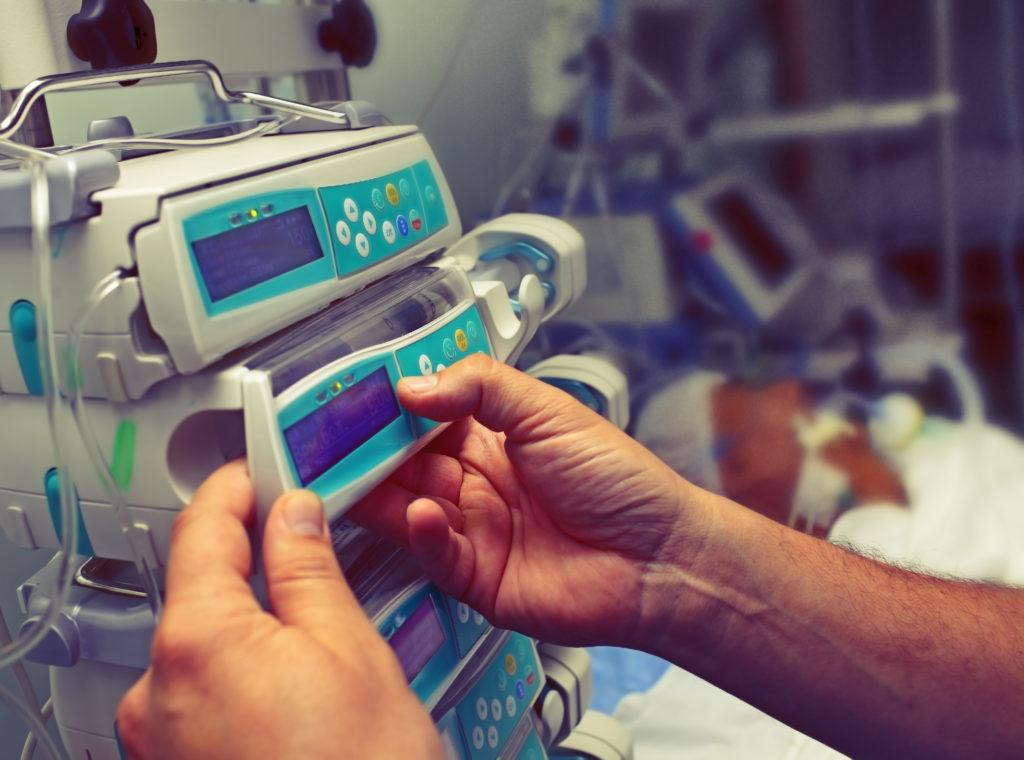Why You Should Choose Telemetry Nursing As Your Next Career
Of all nursing areas, the department that seems to offer the most in regards to learning curve is telemetry.
With a respectable compensation from a relatively low up front investment in education. A telemetry occupation is not for the faint at heart. With often long and indifferent hours, Telemetry Nurses work in an extremely fast paced environment. However, many people are finding job satisfaction in this chosen career.
“I like telemetry because of how conceptual it is—it gives a “real-time” picture of the heart’s electrical conductivity…” —Kanji Monkey, allnurses.com
Telemetry Nurses are found both in hospitals and other clinical facilities. Telemetry Nurses monitor a patient’s vital signs with life sign-measuring devices—typically an electrocardiogram. They treat gastrointestinal diseases, cardiac failure and other heart conditions. Their patients are mostly geriatric; some have diabetes and other have acute diagnoses.
Telemetry Nurses work with cardiac patients that have serious cardiac conditions and risk factors. The heart is an electrical system and cardiac monitors pick up a patient’s cardiac activity on a computer screen. The screen displays electrical patterns for technicians to first review then deliver their medical assessment to a Telemetry Nurse.

Telemetry Nurses: Career Growth On The Rise
Here are just a few reasons why telemetry nursing is becoming a swelling C.A.R.E.E.R. path:
C: Cardiac Patient Interaction
Telemetry is not for everyone. These nurses work in a stressful, challenging environment, but it’s a career that offers huge rewards in terms of patient impact. There’s an overwhelming nurturing and caring element to the job. Patient care and technical details are a must.
What Telemetry Nurses do each day matters in the lives of their patients.
Telemetry careers provide one to one patient interaction and nurturing. For this reason, job satisfaction is aligned with the responsibilities of a Telemetry Nurse because of the opportunity to work with people and be a part of saving more lives. With an average patient to nurse ratio of 6:1, it can be difficult to provide quality care. But, the great Telemetry Nurses always provide exceptional care.
“I am a newer RN and started off on a telemetry unit. I have been used to dealing with these types of patients as I have experience as a Paramedic. For me, the most difficult part has been time management and paperwork. I have heard from a lot of nurses on my unit if we can handle this, we can handle anything. I agree there is a high turnover. I’m not sure if it’s because some RNs simply don’t like it or that they want to move on to ER, ICU or another specialty once they get about a year of experience, maybe it’s about half and half.” —DoubleblessedRN, allnurses.com
A: Available Online Certification
Certification achievement is immediate. Telemetry education is far reaching with obtainable online certifications available—complementary to on the job training. There are telemetry training materials, study guides, and exams you can take online, so getting an advanced certification—even with your busy family and work schedule—is within reach! Reputable and comprehensive certification courses are worth the hard work. You can get a thorough understanding in a relatively short amount of time.
Telemetry Nurses can meet requirements and exceed requirements by adding telemetry certification to their resume. Regardless, pertinent skills are best used when applied on the job. While the job itself may not be easy, online certification renewal typically is.
R: Renewal And Credentials Opportunities
Readily available online renewal opportunities are what help Telemetry Nurses succeed within their career. Without current credentials, you cannot perform your minimal medical job requirements. Renewal procedure submissions allow nurses to keep up with their trade.

- Education And Nursing Advancements
Career advancement is within reach. Onsite hospital or clinical on the job training is prevalent at most organizations. Some even have their own programs. Telemetry Nurses are able to achieve required nursing credentials without endless years of medical school. And yet, they are able to excel and advance within their career.
A telemetry position requires compassion and time management skills. This expertise allows you to do your ER nursing job to the best of your ability.
“The telemetry unit is hard because there is so much to know and do! I absolutely love the learning curve. Do not get me wrong, at times I am frustrated with the amount of knowledge I need to have to be average at this job, but my attitude is such that I am learning a lot in a short amount of time and am not disappointed. I have no problem with geriatrics and see the benefits with working with this population…
I enjoy working with the cardiologists and enjoy telemetry. The cardiologists where I work are easy to work with and interesting people. I hadn’t heard it was harder. We have fewer patients than medical/surgical and they are interesting.” —FireStarterRN, allnurses.com
Having telemetry experience opens your own professional gateway to becoming an excellent, valuable nurse—especially if your interest is becoming an ER nurse one day.

E: Emergency Response Preparation
There are differences of opinion when it comes to career path. One thing that many Telemetry Nurses seem to agree on is that attitude is everything.
Many Telemetry Nurses have the desire to move on to ER and ICU departments. Having telemetry experience will help them along their career path. You must pay your dues. Everyone must do it. Success will depend on the individual. Meaning, it’s all what YOU make of your position. You get what you give—it’s what you put into it that matters on what you’ll get out of it.
“I am not disappointed with the work because I think if I were working on a floor without the type of patients I have now, I would think I was missing out and will have a harder time transitioning into the ER when I have a chance. Most of the people who are triaged onto the floors from the ER are cardiac complications. Therefore, we are gaining the experience we will need in our future—some of the benefit that associates with the ER and ICU include critical drips, blood administration, EKG, cardiac markers, telemetry monitoring—I am doing it all!…
One ER Nurse of 20+ years informed me that many of the good ER Nurses have telemetry and medical/surgical backgrounds. The ER Nurses who have problems for years are those with no medical/surgical or telemetry backgrounds prior to ER nursing. She felt that many of the new grads were unable to think on their feet or apply basic nursing interventions quickly because he/she have trouble seeing the big picture. The big picture comes with experience…experience that cannot be taught or trained. Also skills we gain such as our time management and prioritization—especially with 4-6 critically ill patients—will improve and be of value when we transfer.” —MBARNBSN, allnurses.com

R: Rewarding Benefits: Overall Compensation Package
There’s decent pay for the relatively low upfront educational investment. While your career path will include a continuous renewal process of continuing education credits and advanced training opportunities, the initial certification costs are reasonable. What’s more, with increased demands, your investment will pay off.
There’s a need for life-extending technology treatment and the demand for Telemetry Nurses is growing faster than that for registered nurses (RNs). Observing career growth for general RN’s, the Bureau of Labor Statistics states a positive job outlook for Telemetry Nurses. Between 2014 and 2024 shows a 24% percent growth, which is faster than average.
From 11 (eleven) individuals reporting, PayScale current outlines that fifty percent of U.S. Telemetry Nurses earn a median $28.68 per hour. There’s bonus opportunities of up to $4,300K and payment for overtime can reach $60.40 an hour, depending on the state you live in and the organization you’re recruited by. With opportunity for advancement, the average compensation for Telemetry Nurses is $62,307.
The majority of Telemetry Nurses claim high levels of job satisfaction because there’s typically medical health benefits included with their total compensation package, being that they work in a hospital or clinic.
Medical health and dental insurance is reported by over half of Telemetry Nurses, but according to respondents from a recent PayScale salary questionnaire, not all workers are fortunate to have benefits—one in three are without coverage. The benefit package needs to be negotiated upon hire.
Nonetheless, there appears to be job security due to the increasing number cardiac patient needs.

A Telemetry Nurse: A Career For Men And Women
Most Telemetry Nurses survey respondents are women (76 percent), but there has been an uptick in male nurses in general, not because males are more equipped for the daily duties, but because men are also recognizing increased career advancement possibilities available within the telemetry landscape. According to the U.S. Census Bureau: in 1970, there were only 2.7% of registered male nurses. In 2011, this number increased to 9.6%. The American Association for Men in Nursing (AAMN) has a goal to increase male nurses to 20% by 2020.
“After my Mother passed away from heart disease, I wanted to be a part of something larger. I always knew I wanted to be working within a hospital setting, but wasn’t sure if I wanted to become a cardiac physician right out of high school or undergraduate. Besides, I couldn’t afford to put myself through 10+ years of medical school right away. Telemetry is a great first step to pay my dues, so to speak. I learn a lot and was able to get my certification immediately.” —Joe Rowley, Chicago, IL
Telemetry nursing provides advanced medical exposure to cardiac procedures and heart condition techniques. Men are seeking telemetry roles because of this exposure and reasonable wages while they learn their trade in cardiac medicine. No longer a career for just females, nursing has men taking center stage. Men seem to truly understand what it takes to be a good nurse and are putting in their time—some, on their way to medical school or further cardiac training.
Nursing = Telemetry Career Advancement
Why is Telemetry Nursing becoming one of the fastest growing medical careers? As job boards indicate, the demand for highly skilled nurses continues to grow in America, making telemetry a promising career choice.
Curious, ambitious nurses—male or female—with a strong desire to advance their skills will lead a rewarding professional career path. Those who want to enhance their resume or move on to ER units benefit as well. Telemetry Nurses provide their patients with care and nurturing that cardiac patients require. These are the nursing professionals that will move up in progression or find themselves loving loving their current position—exactly where they are.
There are related career specialties that Telemetry Nurses are advancing into too. Opportunities for travel nurses are also on the horizon. In Detroit, Michigan alone, there some 361 jobs in a variety of nursing departments that recently posted on the familiar website: nurses.org
Flight/Transport Nurses: Critically ill or severe injury patients that are transferred from one treatment to another, relying on high-technology monitoring
Emergency Room Nurses: Acute care patients that arrive without specific diagnosis
Nurse Informatics: Combines knowledge of information science, technical telemetry nursing, and communications to convey data
Thinking of becoming a Telemetry Nurse? Download the study guide today!




